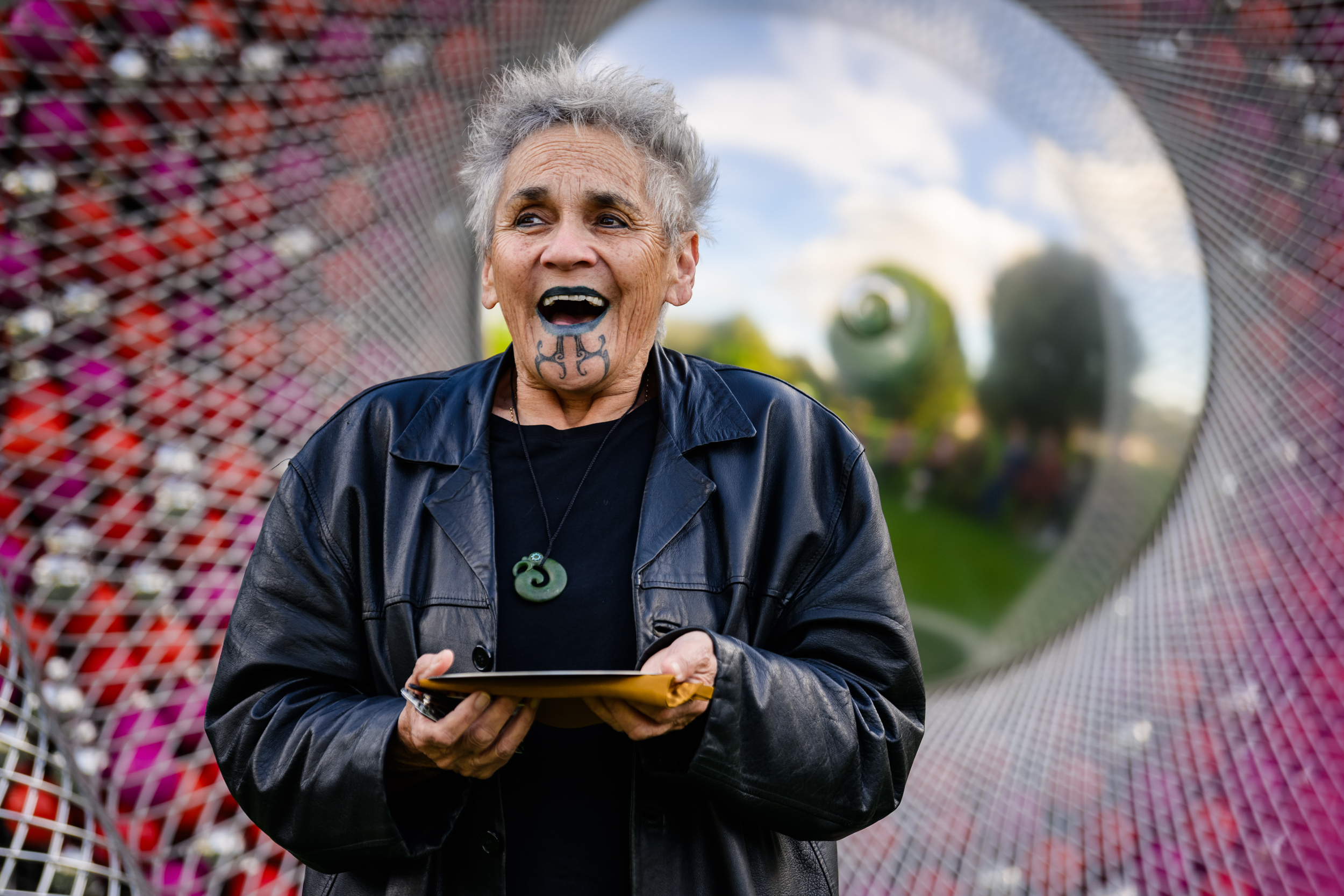Ngahuia te Awekotuku
Profile
Emeritus Professor Ngahuia Te Awekotuku is an award-winning researcher, writer, activist, curator, and critic. She is the first wāhine Māori to earn a PhD at a university in Aotearoa New Zealand and is credited with helping to establish women’s studies as an academic discipline and developing takatāpui courses at Victoria University. Ngahuia’s academic research and writing include work on culture, gender, heritage and sexuality. Her fiction and poetry have been published and acclaimed locally and internationally.
In 2010 Ngahuia was appointed a Member of the New Zealand Order of Merit and in 2023 she was elected as a Companion of the Royal Society Te Apārangi, for her boundary-breaking work in the humanities.

Insight
Ngahuia’s words published 53 years ago, are as sharp and relevant today, as they were in 1971.
Aotearoa has undoubtedly made progress towards gender equality in the last five decades. In 1971 it was still legal to pay women and men differently for doing exactly the same job! Legislative changes have brought improvements and protections in the areas of pay equity, prohibited areas of discrimination, gender-based violence, reproductive rights including abortion services, homosexual law reform, civil union legislation, marriage equality and more.
However, not only have we not made enough progress to achieve gender equality for all, we are now witnessing a blacklash. Globally and in Aotearoa, we are seeing the rise of an anti-gender movement, legitimized by the rhetoric of conservative politicians and evangelical religious leaders. Gender equality, and even the concept of gender, is being demonised as a threat to families and to civil society.
Calling out the bigoted who seek to make gender and sexual orientation a moral issue rather than a human right, takes on renewed importance as we continue the fight for gender justice.
Te Reo Glossary
Te Reo Glossary
ākonga
student, pupil
alofa
love, affection (Cook Islands Māori language)
Aotearoa
New Zealand
aroha
love, affection
haere rā
goodbye, farewell
hapū
subtribe, part of a kinship group
ira tangata
term used for intersex in a Māori context
irawhiti
term used for transgender in a Māori context
Itāria
Italy
iwi
extended kinship group descended from a common ancestor and associated with a distinct territory in Aotearoa
kairangahau
researcher
kaitiaki
guardian
kaitiakitanga
guardianship, stewardship
kia kaha ngā wāhine toa
be strong woman warriors
kia ora
hello, greetings
kia orana
hello, greetings (Cook Islands Māori language)
kōrero
conversation, discussion
kuia
female elder
mahi
work
māmā
mother, mum
mana
status, prestige, authority,
Māngere
a major suburb in South Auckland, New Zealand
Māori
Indigenous people of Aotearoa New Zealand
mauri
life force, life principle
moana
ocean, sea
Ōtautahi
Christchurch, city in South Island, New Zealand
Ōtepoti
Dunedin, city in South Island, New Zealand
pākeha
New Zealander of European/foreign descent
peka
branch (of a tree, river, organisation)
Pōneke
Wellington, Capital of New Zealand
rangatahi
youth, young people
takatāpui
queer, gay, rainbow community
Tāmaki Makaurau
Auckland, city in North Island, New Zealand
tapu
sacred, prohibited
tautoko
to support, advocate
Te Kāhui Tika Tangata
Human Rights Commission, New Zealand
Te Kaunihera Wahine o Aotearoa
National Council of Women of New Zealand
Te Kotahitanga
Autonomous Māori Parliament from 1892 to 1902
Te Moana-Nui-ā-Kiwa
the Pacific Ocean
te reo
the Māori language
Te Ropu Wahine Maori Toko i te Ora
Māori Women’s Welfare League
Te Wāhi Wāhine o Tāmaki Makaurau
Auckland Women’s Centre
tikanga
protocol, correct procedure
wāhine
woman, women
wāhine kaha
strong woman/women
waiata
song, chant
waiata taitoko
song of support usually sung after a speech
wairua
spirit, soul
whakapapa
genealogy, lineage
whānau
family, extended family group
whare
house, building